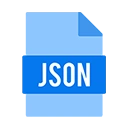JSON (JavaScript Object Notation) is a widely used data format for data interchange across various programming languages. Many programming languages provide built-in support for parsing JSON, while others have libraries that facilitate this process. Below, we will explore some common libraries for parsing JSON in different programming languages, along with sample code to illustrate their usage.
1. JavaScript
In JavaScript, JSON parsing is natively supported through the JSON object, which provides the JSON.parse() method for converting JSON strings into JavaScript objects.
Example:
const jsonString = '{"name": "John Doe", "age": 30}';
const jsonObject = JSON.parse(jsonString);
console.log(jsonObject.name); // Output: John Doe
console.log(jsonObject.age); // Output: 30
2. Python
In Python, the json module provides methods for parsing JSON data. The json.loads() function is used to parse a JSON string into a Python dictionary.
Example:
import json
json_string = '{"name": "John Doe", "age": 30}'
json_object = json.loads(json_string)
print(json_object['name']) # Output: John Doe
print(json_object['age']) # Output: 30
3. Java
In Java, the org.json library (also known as JSON-java) provides a simple way to parse JSON. The JSONObject class can be used to parse a JSON string.
Example:
import org.json.JSONObject;
public class Main {
public static void main(String[] args) {
String jsonString = "{\"name\": \"John Doe\", \"age\": 30}";
JSONObject jsonObject = new JSONObject(jsonString);
System.out.println(jsonObject.getString("name")); // Output: John Doe
System.out.println(jsonObject.getInt("age")); // Output: 30
}
}
4. C#
In C#, the Newtonsoft.Json library (also known as Json.NET) is a popular choice for parsing JSON. The JsonConvert.DeserializeObject() method can be used to convert a JSON string into a C# object.
Example:
using Newtonsoft.Json;
public class User {
public string Name { get; set; }
public int Age { get; set; }
}
public class Program {
public static void Main() {
string jsonString = "{\"name\": \"John Doe\", \"age\": 30}";
User user = JsonConvert.DeserializeObject<user>(jsonString);
Console.WriteLine(user.Name); // Output: John Doe
Console.WriteLine(user.Age); // Output: 30
}
}
</user>5. PHP
In PHP, the json_decode() function is used to parse JSON strings into PHP associative arrays or objects.
Example:
$jsonString = '{"name": "John Doe", "age": 30}';
$jsonObject = json_decode($jsonString);
echo $jsonObject->name; // Output: John Doe
echo $jsonObject->age; // Output: 30
6. Ruby
In Ruby, the json library provides methods for parsing JSON. The JSON.parse() method can be used to convert a JSON string into a Ruby hash.
Example:
require 'json'
json_string = '{"name": "John Doe", "age": 30}'
json_object = JSON.parse(json_string)
puts json_object['name'] # Output: John Doe
puts json_object['age'] # Output: 30
7. Conclusion
JSON is a versatile data format supported by many programming languages, each offering libraries or built-in methods for parsing JSON data. Understanding how to parse JSON in different languages is essential for developers working with data interchange in web applications and APIs. The examples provided above illustrate how to effectively parse JSON in JavaScript, Python, Java, C#, PHP, and Ruby, showcasing the simplicity and utility of JSON parsing across various programming environments. By leveraging these libraries and methods, developers can easily handle JSON data, making it an integral part of modern software development.

